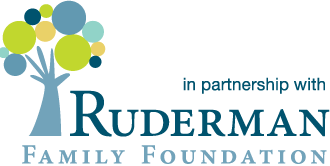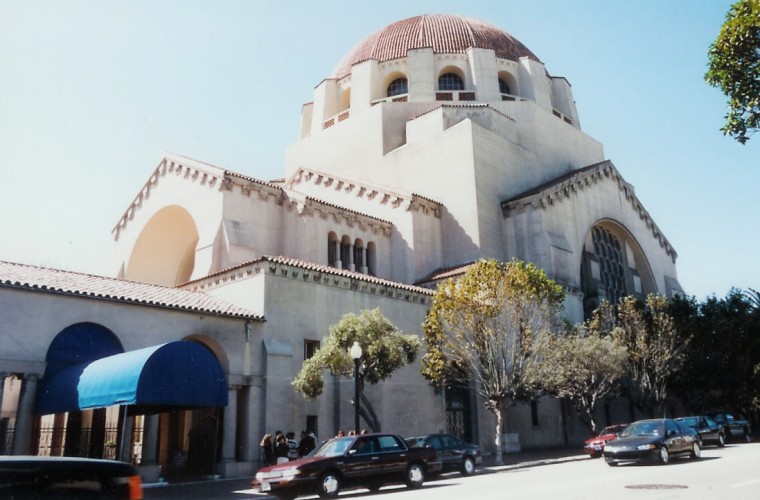Areas of Inclusion: Adults in Communal Life, Advocacy & Community Partnerships, Architectural & Physical Accommodations and Transportation, B’nai Mitzvah, Blindness, Early Childhood Education, General Inclusion, Mental Health, and Youth Group, High School, and College Programming
Contact Information
Inclusion Programming
Does this congregation have an inclusion committee?
No
Developing Our Program
The original program to include students with disabilities in our educational program began in 1988 as part of an initiative of the (then) Bureau of Jewish Education. Congregation Emanu-El was the first pilot school in the San Francisco Bay Area to hold a class for children with disabilities on Sunday mornings. It was a magnet program for the area, but in reality, all the students were from Emanu-El. After the first two or three of years of holding this self-contained class, we decided to close it and instead include children in the typical classes with support from our learning specialist. We have been doing this ever since, with the addition of “Caring Companions” or shadow teachers for students who would not be successful in a class without this amount of support. Over the years, we have modified and added to the program on a case-by-case basis, according to student need. We also inform families that all students who want to will be able to become Bar/Bat Mitzvah, and we make a wide variety of accommodations to make this happen.
Number of people involved in the effort: 100
Involving People with Disabilities
• In 2010 we convened a special needs forum for the Bay Area. The two main outcomes for Emanu-El were to:
1. Provide a safe and welcoming environment at Congregation Emanu-El for all members.
2. Raise awareness in the Jewish community that resources exist and support will be offered from diagnoses through services.
3. Create a Shabbat social story for children with Autism to gain more comfort in attending services because they know what to expect.
• In 2011 we asked all families with children to join us for a frank conversation about what needs they are seeking from their synagogue to examine if we could accommodate them. Additionally we started a havurah for families with children with special needs. Unfortunately the ages and needs of the children were so varied, that the group was too heterogeneous to sustain itself.
• Our Director of Adolescent Education partnered with the Friendship Circle and matched our teen students with children with special needs in an effort to educate and de-stigmatize differences.
Funding This Effort
Money comes out of our general education and social justice budgets.
Helpful Agencies & Organizations
Bureau of Jewish Education (now Jewish Learning Works) started the pilot program in 1988. We hosted and paid for half of a special education teacher's salary. By 1990 we chose to completely fund this position full time.
National Alliance on Mental Illness: Helped us host an open house and provided the materials and a trained educator (our congregant) for the 12 week series, Family-to-Family.
Friendship Circle: matched our teen students with children with special needs in an effort to educate and de-stigmatize differences.
Alcatraz Swim for Sight: benefiting That Man May See, the support foundation of UC San Francisco Department of Ophthalmology. 10 million Americans suffer vision loss from Retinitis Pigmentosa, Usher Syndrome or Macular Degeneration, which are all incurable at this time. The community-based swim has grown 100% each year; and Emanu-El has partnered, swam, fund raised, and hosted a brunch for 3 consecutive years with our congregants Lorie and Ron Hirson.
SilverRide: SilverRide was established to support the direct needs of older adults, their children, caregivers, and senior communities looking for senior-focused and senior-friendly services. Emanu-El and the Jewish Community Federation of San Francisco, the Peninsula, Marin and Sonoma Counties underwrite the monthly use of SilverRide to bring homebound, isolated, frail, & elderly seniors to Shabbat services.
List of Helpful Agencies & Organizations
Spreading Awareness About Our Work
• Monthly Temple Chronicle
• Website
• Enrollment Application Forms
• Email
• Word of mouth
• Special needs Shabbat awareness in February
Process & Sharing
History, Materials & Processes that Guided Our Approach
• Currently we have a monthly support group for family members, caregivers, and friends of someone experiencing mental illness. This support group is facilitated by a congregant volunteer.
• Youth & Family Education: Before the start of the school year, teachers receive information sheets with pertinent details about all needs about which they should be aware. Caring Companions, teens that receive some extra training in working with students with special needs, serve as shadow teachers for children who require one-on-one attention in the classroom. The Child Concern Team, which consists of Flora Kupferman, Special Education Resource Teacher, and Heather Erez, Director of Youth Education, meets weekly to discuss any child who has had some type of concern during the week. Bar and Bat Mitzvah preparation and ceremonies are tailored to every child’s abilities and needs. We have developed various referral and communication forms in order to document the steps we take to ensure that no student at Emanu-El “falls between the cracks”. All our students are special, and when they require special education of any kind, they receive it.
• We are limited by our historic building but have done as much as possible with these constraints. We have taken into consideration our built environment—paths, doors, rooms, restrooms, and kitchens—allowing accessibility standards to the greatest extent possible. Accessibility is also considered when planning events, seeking program or meeting space, and evaluating placement sites. We give consideration to ensuring the continued ability of persons with mobility, hearing, visual, and cognitive disabilities to continue to use our space independently and with dignity. We provide monthly car service for those who cannot get to Temple for Shabbat on their own.
• We have a white zone in front of the building for easy pick-up and drop-off of congregants with disabilities and a designated handicapped parking space.
• We offer large print siddurs and hearing aids for all services.
• Our 3 sanctuaries are wheelchair accessible as is the Bimah in our main sanctuary. We also have wheelchair accessible bathrooms and an elevator for all five floors in the newer building.
History, Materials & Process Documents
Evidence of Successful Inclusion Efforts
Mostly we hear from parents who are so moved & grateful that their child can have a bar or bat mitzvah tailored to their needs and abilities. The number of students in our program with disabilities has increased over the years. Parents are providing information on registration forms. We have had several families come to Emanu-El because their children’s needs were not met at another congregation and they knew that we would make accommodations for them.
There also has been a stream of affirmation for tackling mental illness so publicly and offering concrete and continuous support.
We were able to get non-special needs congregants to attend INCLUDE (a partnership of Jewish LearningWorks and the SF-based Jewish Community Federation and Endowment Fund) on a groundbreaking series of interactive workshops on inclusion for synagogue communities. The series was called Navigating Difference, Embracing Inclusion: Opening Your Synagogue Door Even Wider.
We recently created a Shabbat social story for children with Autism, anxiety, and other disabilities to gain more comfort in attending services, because they know what to expect.
Evidentiary Documents
Evidence of Changing Attitudes
1. Provide a safe and welcoming environment at Congregation Emanu-El for all members.
2. Raise awareness in the Jewish community that resources exist and support will be offered from diagnoses through services.
3. In 2011 we asked all families with children to join us for a frank conversation about what needs they are seeking form their synagogue to examine if we could accommodate them. Additionally we started a havurah for families with special needs children. Unfortunately the ages and needs of the children were so varied, that the group was too heterogeneous to sustain itself.
The biggest change in attitudes has come from speaking about, educating, & supporting congregants and their families who live with mental illness which has led to a dedicated mental illness page on our website with classes, support, stories and resources. We are so proud of those who have come out of the shadows for help and are an integral part of helping the synagogue think through when we should advocate and who we should bring in to educate.
How We're Using and Sharing the Disabilities Inclusion Learning Center
We have a weekly planning meeting for staff and clergy where there is always an opportunity to teach back what is learned. We also will provide on-line resources to our congregants.
I also am a board member of the Program and Engagement Professionals group (a URJ Affiliate) and often teach at least one workshop at the annual conference.
Future Inclusion Efforts
Have preschool certified by Rosh Pina which supports Jewish institutions in becoming special needs certified, leading them through a year-long journey that includes aspects of community building, program modification and development, and engaging in deep study on the board, clergy, lay leader and teacher levels.
During the certification process, Emanu-El will engage in conversations about all facets of our institutional life, including but not limited to: physical structure, curriculum, family programming, language use and leadership.


